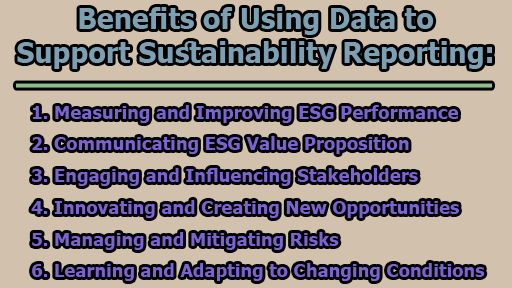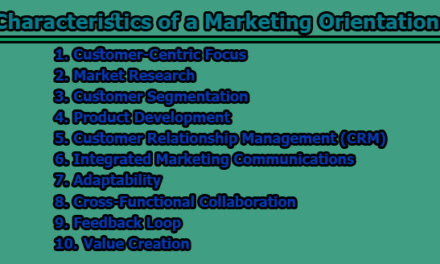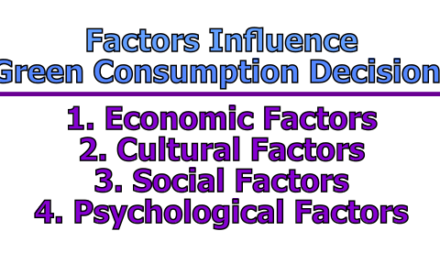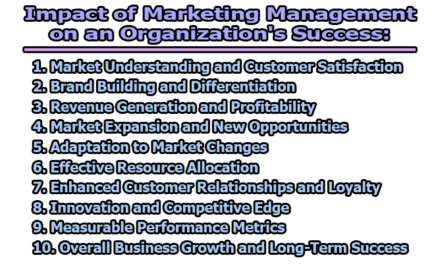Benefits of Using Data to Support Sustainability Reporting:
Sustainability reporting has evolved from being a voluntary practice to a vital aspect of business operations. It involves the disclosure of an organization’s environmental, social, and governance (ESG) impacts, and it plays a significant role in shaping a company’s reputation, engagement with stakeholders, and overall performance. While sustainability reporting has long been recognized as essential, a key question arises: How can businesses leverage data to demonstrate the business value of their sustainability efforts? In this article, we will explore the myriad benefits of using data to support sustainability reporting.
1. Measuring and Improving ESG Performance: One of the most compelling reasons for incorporating data into sustainability reporting is its ability to measure and improve ESG performance. By collecting and analyzing data related to environmental impacts, social responsibility, and governance practices, organizations can gain insights into their strengths, weaknesses, opportunities, and risks. Data-driven reporting enables businesses to set realistic, measurable targets, track their progress, and evaluate the outcomes. This data-driven approach can lead to the optimization of resource efficiency, reduced emissions, enhanced social responsibility, and stronger governance practices.
2. Communicating ESG Value Proposition: Using data to demonstrate the business value of sustainability reporting helps organizations communicate their ESG value proposition effectively. Data can illustrate how sustainability efforts contribute to financial performance, competitive advantage, and stakeholder satisfaction. By showcasing positive impacts on the environment, society, and the economy, companies can build trust and credibility with their stakeholders. Aligning with global standards and frameworks, such as the UN Sustainable Development Goals and the Global Reporting Initiative, can also be highlighted, further enhancing the company’s reputation.
3. Engaging and Influencing Stakeholders: Another benefit of using data in sustainability reporting is the ability to engage and influence stakeholders. Data-driven narratives about a company’s sustainability journey can capture the attention and interest of stakeholders. Moreover, data can be employed to solicit feedback, input, and collaboration from stakeholders, fostering a meaningful dialogue around sustainability challenges and opportunities. This approach can inspire and motivate stakeholders to take action and actively support sustainability goals.
4. Innovating and Creating New Opportunities: Data-driven sustainability reporting can spur innovation and create new opportunities for businesses. Analyzing data can help organizations identify emerging trends, new markets, and evolving customer needs. This insight allows companies to seize growth and differentiation opportunities. Furthermore, data can be used to develop innovative products, services, and business models that address ESG issues and align with stakeholder values, ultimately driving sustainability performance.
5. Managing and Mitigating Risks: Data is invaluable in managing and mitigating risks associated with ESG factors. It enables companies to monitor and anticipate potential impacts on their operations, reputation, and financial results. Through data-driven analysis, organizations can proactively address and prevent risks related to climate change, human rights, and corruption, among other ESG concerns. This not only enhances risk management and compliance capabilities but also safeguards the company’s long-term viability.
6. Learning and Adapting to Changing Conditions: Incorporating data into sustainability reporting supports learning and adaptation to changing conditions. Businesses can evaluate and benchmark their sustainability performance against peers, competitors, and best practices, identifying areas for improvement. Data also allows for the testing and validation of assumptions, hypotheses, and strategies. As conditions evolve, data-driven insights help organizations adjust their sustainability initiatives, fostering a culture of learning and continuous improvement.
In conclusion, data-driven sustainability reporting offers a plethora of benefits that go beyond compliance. It empowers businesses to measure and enhance their ESG performance, communicate their value proposition, engage stakeholders, foster innovation, manage risks, and adapt to a changing world. As sustainability continues to be a focal point for businesses and society, leveraging data in sustainability reporting is not just a good practice – it’s a strategic imperative that can drive business success while contributing to a better future for all.

Library Lecturer at Nurul Amin Degree College










